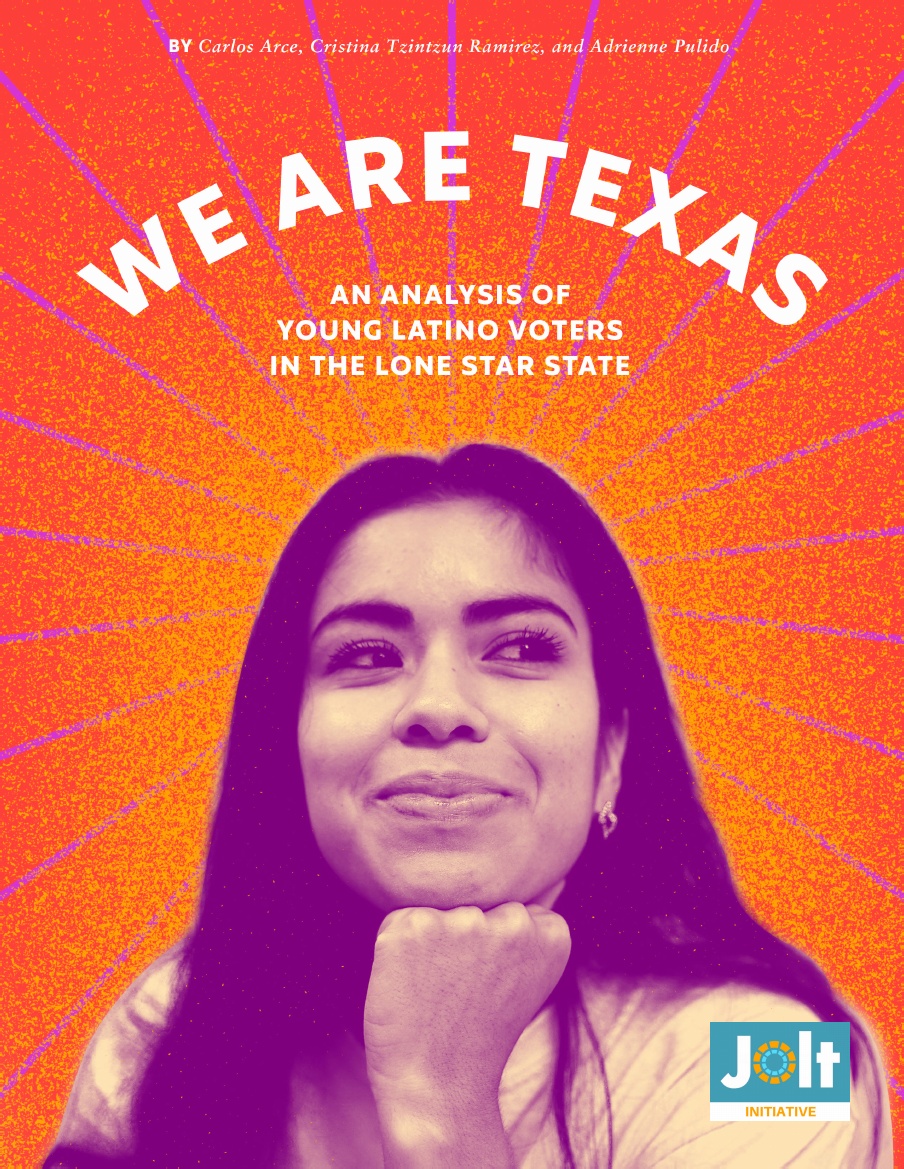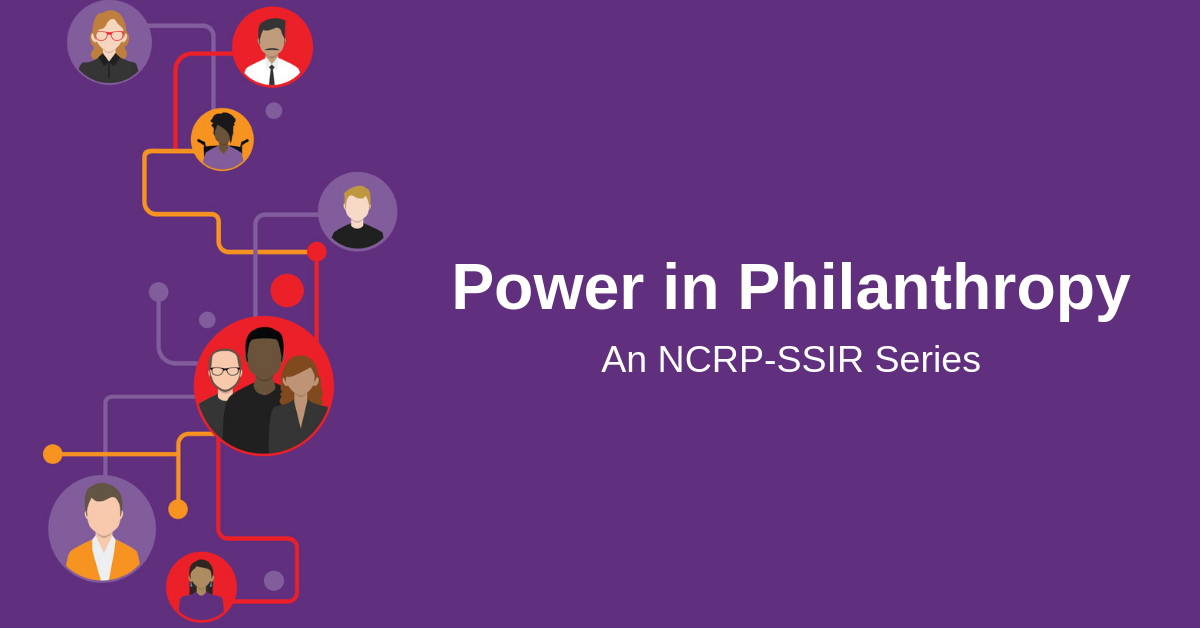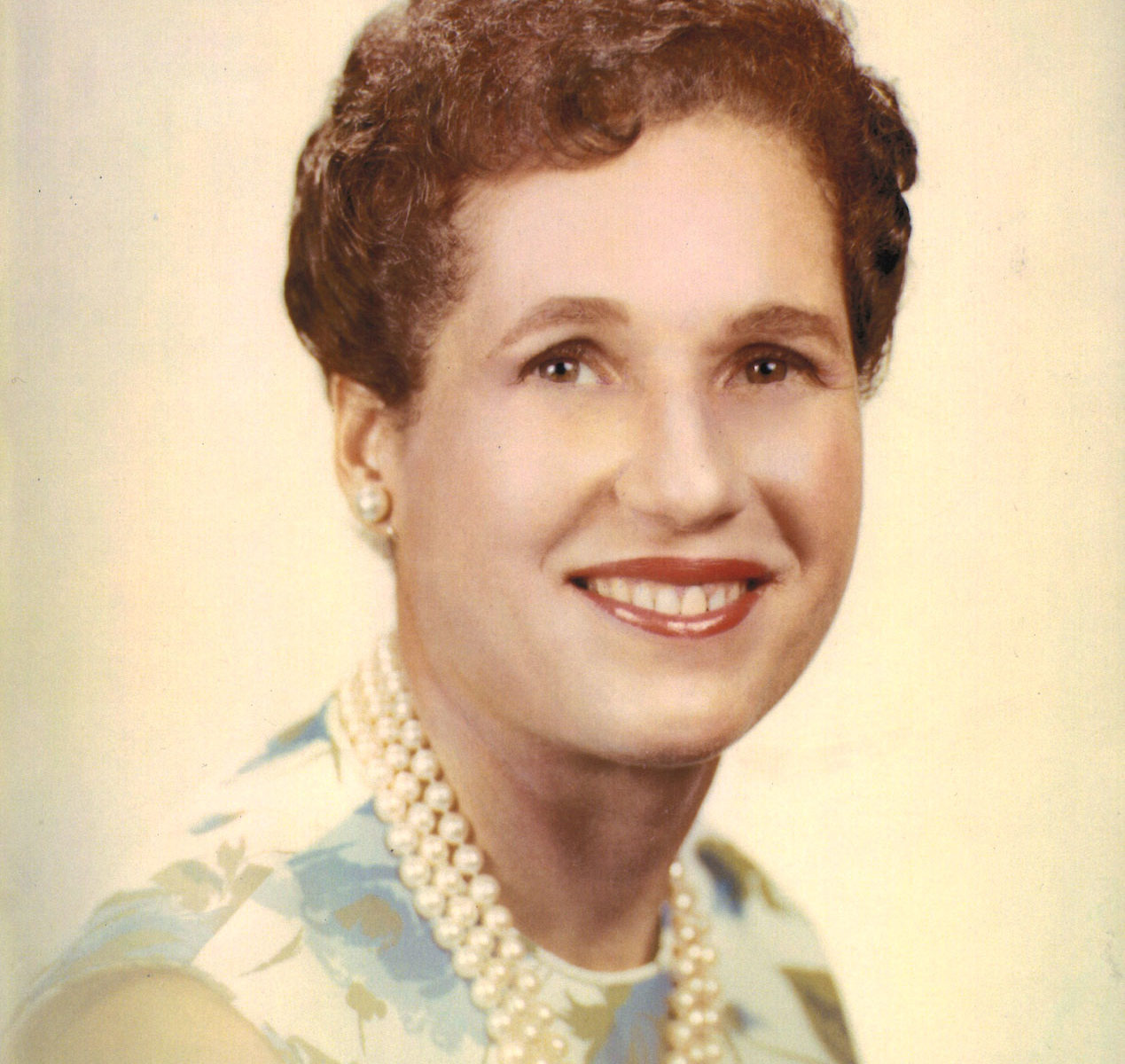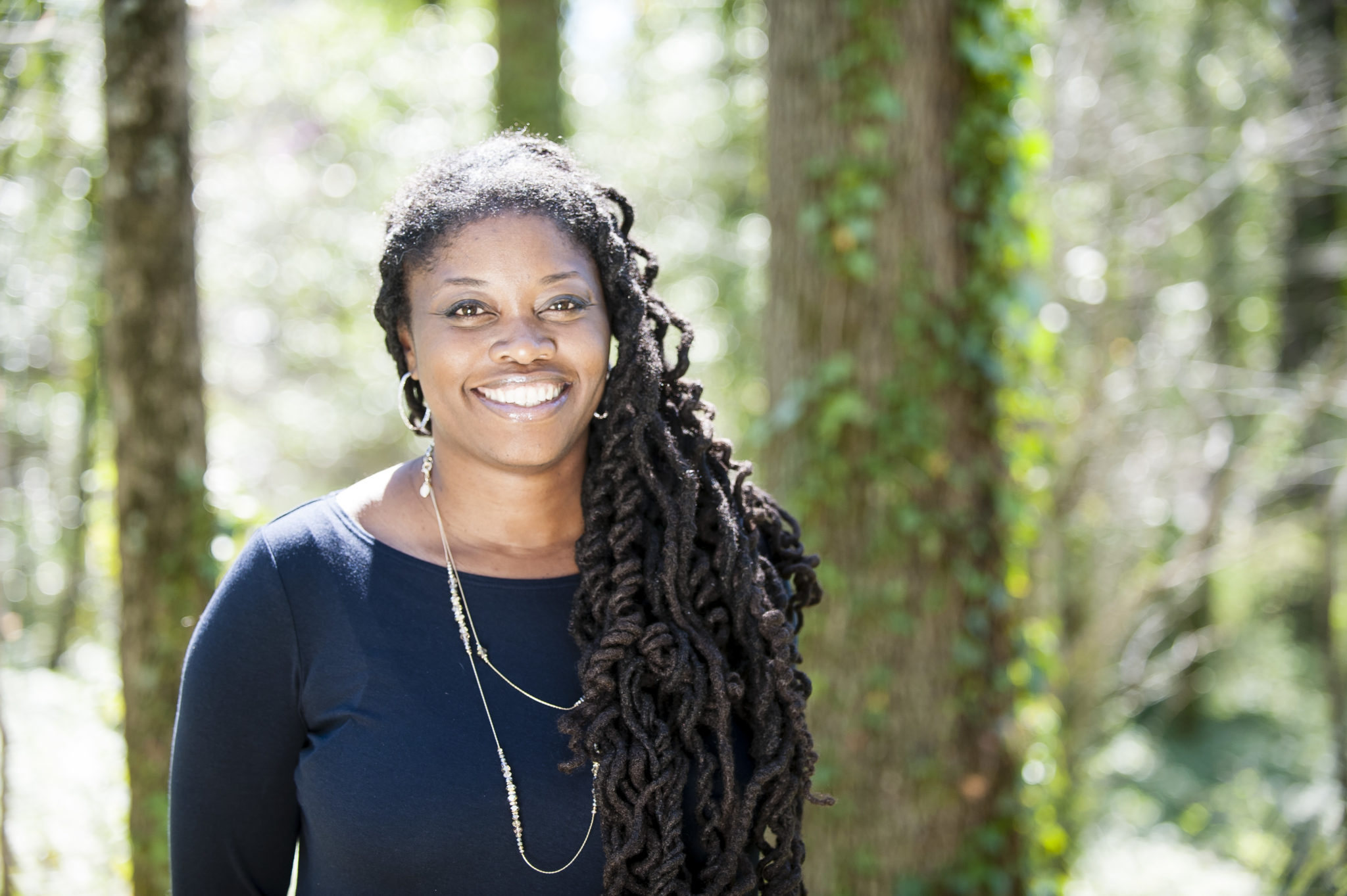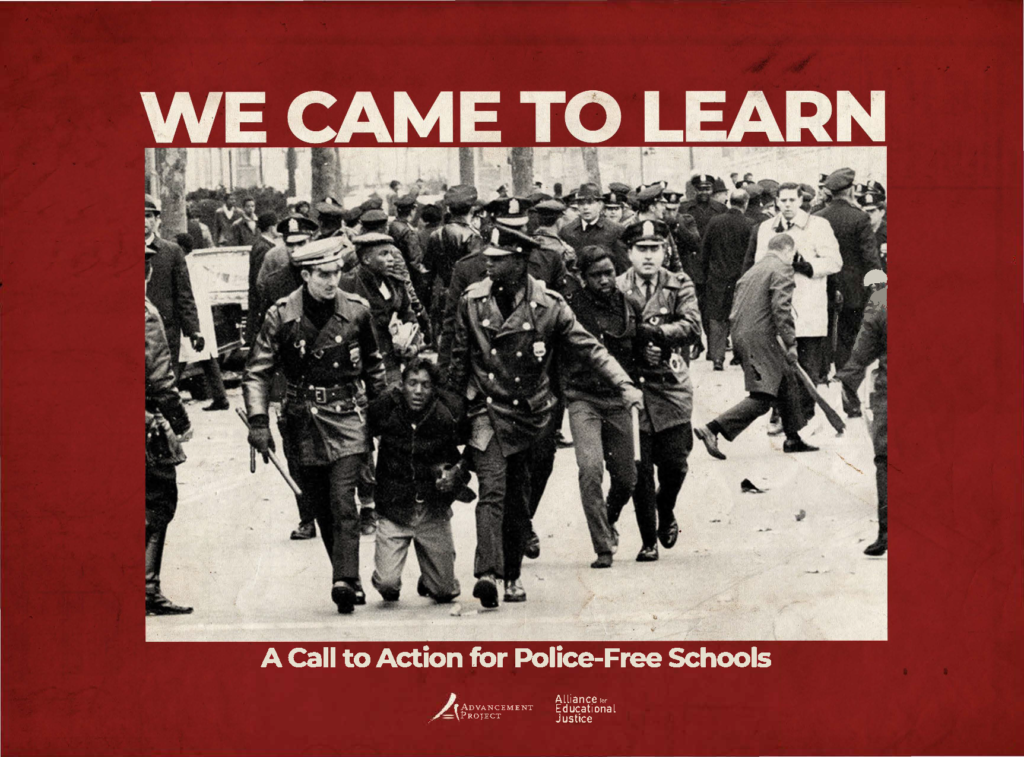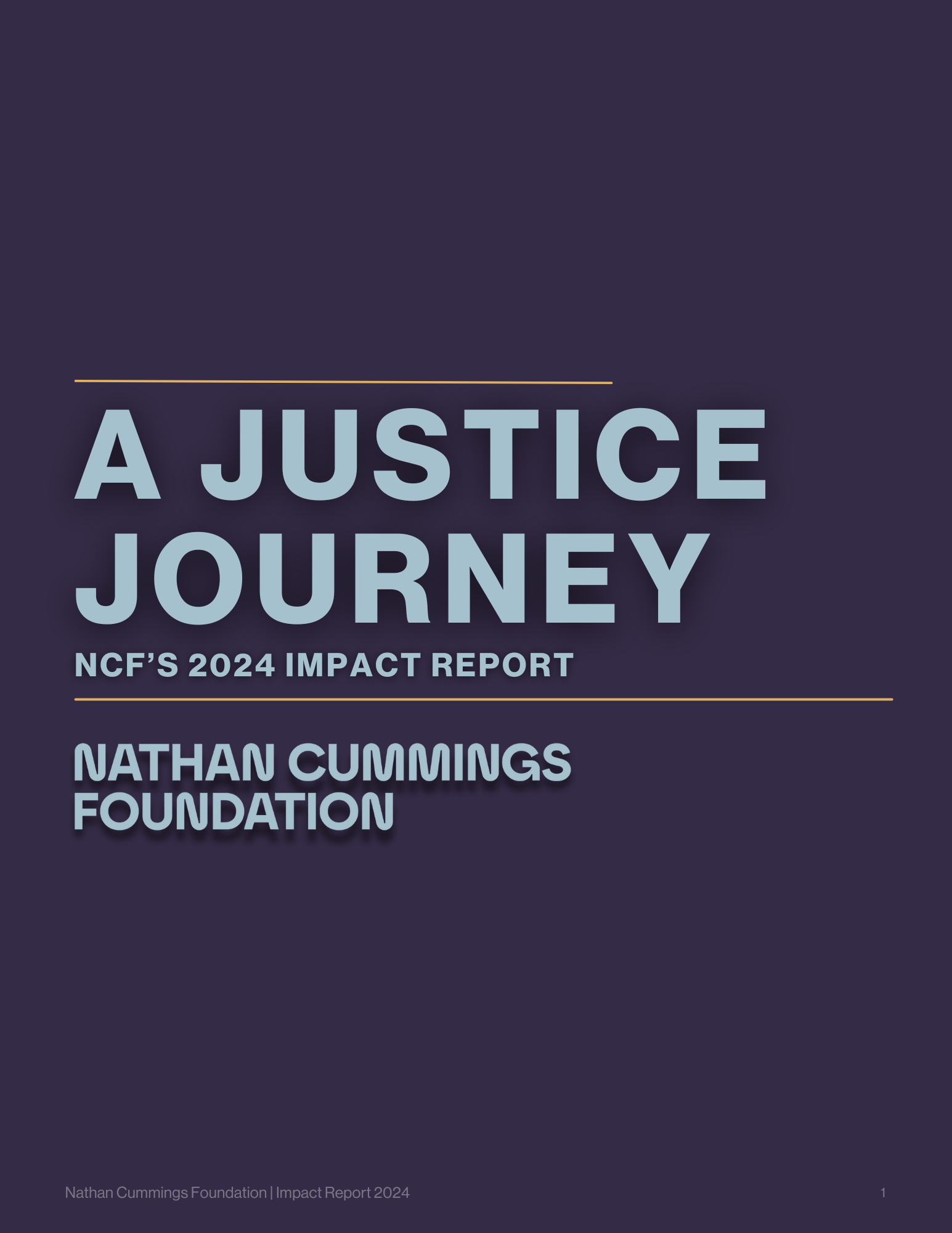Philanthropists can help address over-incarceration in America and the serious harm it does to communities by supporting efforts to better understand and confront the network of companies that currently profit from the US prison and detention system—what criminal justice experts call “the prison-industrial complex.”
Read more via Arabella Advisors.
Elizabeth Mendez Berry shared her experience as a music writer in the 2000s when music criticism was valued in the industry as well as beyond white readership. She has now pivoted to working in philanthropy, most recently for the Nathan Cummings Foundation and is an ardent cultural critic advocate. “Critical thinking is important for artistic practice and it’s also really important for democracy,” she said.
Read more via The LatinX Project.
Dear Partners,
It has not been easy to find the words to write about the tragic shooting in Pittsburgh on Saturday. Since becoming president of the Nathan Cummings Foundation, I’ve written to you more than a few times and not nearly as many times as I could. In response to violence, racism, and anti-immigrant sentiments, we’ve shared our pain, our anger, our fear, and our frustrations; our power and powerlessness, and our resolve to stand up, to speak out, and to support more people to act for change.
Saturday was another day of reckoning for our country. In Squirrel Hill, Pittsburgh, a gunman shouting anti-Semitic epithets murdered 11 Jewish people at the Tree of Life Synagogue. It was the deadliest attack on a Jewish community in U.S. history. They were killed while they worshipped, a time when they should have felt safest.
Like Jews all over America and the world, I went to my synagogue on Saturday with my family, as we do most Saturdays. We celebrated many of the same joyous milestones as those at the Tree of Life congregation – a baby naming, two bat mitzvahs and a soon-to-be marriage. There was so much love in that space and in our hearts.
Every day, in houses of worship all over the country, communities gather to pray, to grieve, to celebrate and to love. This is not the first time that people in a house of worship were murdered in an act of terror by an American white supremacist. The Sikh temple in Oak Creek, Wisconsin and Mother Emanuel, in Charleston, South Carolina, the oldest African Methodist Episcopal church in the Southern U.S. experienced the terror of a person armed with a gun and hate opening fire. And just days ago, a gunman murdered two Black elders at a Louisville grocery store after being denied entry at a predominantly Black church nearby.
This vile act of hate and violence, though it targeted the Jewish community, was not only about anti-Semitism.
This was about emboldened white nationalism and those who are fighting for an America where only white, Christian, heterosexual people belong and are deserving of a place in our society. This was about the increasingly-dangerous political rhetoric that seeks to dehumanize, divide and isolate. We all have a responsibility to denounce this and stand together to defeat it.
This was also about radical solidarity. It targeted Jews advocating for the rights of refugees and immigrants, those fleeing crises for a safe haven here. This act was meant to divide and isolate us but it has only made us come together more strongly and with more resolve.
As tens of thousands mourn and organize in vigils and meetings across the country, we stand with our Jewish partners at Bend the Arc, the Anti-Defamation League, Jews for Racial and Economic Justice, T’ruah, the Religious Action Center, North Carolina Jews for Justice, Detroit Jews for Justice and Jewish Community Action (Minnesota), among many others. All across the country, Jews are standing with allies from Black and brown, Muslim, Christian, Sikh, Buddhist, atheist and agnostic, LGBTQ and other communities. We are strengthened by their actions as together they challenge white supremacy, anti-Semitism, racism, xenophobia, transphobia and bigotry. We are hopeful as we see so many partners responding with more clarity, strength and alignment than ever before. We are inspired to deepen our practices of radical solidarity with our partners and the broader field.
Together, we are strong – and growing stronger. Together, we will prevail.
Here at NCF, we are focused on sounding the alarm with our partners to the threat white nationalism poses to our democracy, how the misogyny, racism, anti-Semitism and xenophobia emerging from our nation’s leadership writes the script for extremist violence, and supporting movements and coalitions aimed at overturning white supremacy and institutionalized racism.
NCF will continue to deepen our commitment in these areas of work in the coming months. Beyond our grantmaking, we’ll continue to use all of our resources – our voice, investments, and people – to demand accountability and action from our political and corporate leaders and to build cross-sector alliances to push back against hate. We are funding research, convenings and trainings across diverse communities, building bridges among leaders and activists across social movements, and supporting multiracial, multi-faith change-makers to articulate and advocate for an alternative vision based on justice and revolutionary love. We invite our colleagues in philanthropy to join us in countering white nationalism and to stand together to face this threat together.
In the days ahead, NCF will do all we can to shine a spotlight on the hate and division being stoked by the current administration and others for political gain. Speaking out against hate and responding with love is at the core of who we are.
In hope,

Sharon Alpert
President & CEO
Nathan Cummings Foundation
At a time when progress on critical issues like inequality, racial justice and climate change is both threatened and increasingly urgent, a growing number of investors are looking to use their investments to drive change on social and environmental issues while generating financial returns. At the Nathan Cummings Foundation (NCF), for example, we strive to use all of our assets—including our proxy votes—to pursue justice for people and the planet and to achieve the change we want to see in the world.
We are not alone. The number of foundations with public commitments to pursue mission aligned and impact investing has grown rapidly over the last few years. Foundation members of the U.S. Impact Investing Alliance’s Presidents’ Council, who share a commitment to practicing and promoting impact investing, hold more than $80 billion in combined assets. And that’s just one of a number of organizations where foundations come together to explore the potential of mission aligned and impact investing.
Despite this encouraging trend, the number of investors employing active ownership strategies—including intentionally voting their proxies and filing shareholder proposals in line with their mission—continues to be relatively small, especially among foundations. This is a shame, because in addition to being relatively simple to do, it can also have a significant impact.
Let’s look at proxy voting, a fundamental building block of a mission aligned portfolio. How many foundations with a focus on racial and/or gender justice failed to ensure their proxy votes were cast in favor of proposals asking companies to increase board diversity or report on equal employment opportunity or gender pay gaps? How many foundations with a focus on climate change pushed their managers to vote in favor of the more than 40 shareholder proposals on climate change up for a vote in 2017? Foundations that aren’t paying attention to proxy voting are missing an easy but powerful opportunity to use their standing as investors to drive progress on their missions.
It’s true that almost all shareholder proposals are nonbinding, but we’ve seen time and again that majority votes nearly always spark action. At Occidental Petroleum, a majority supported proposal on climate risk resulted in a commitment to report on carbon asset risk. Another example: shortly after a majority-supported proposal requesting investor access to the corporate proxy to nominate directors, Exxon appointed a climate scientist to its board.
You may ask what difference a few shares make, but when it comes to shareholder proposals, every vote counts. Pressing your managers to support proposals in line with your values can tip their position on an issue and the vote. Last year, Vanguard and Blackrock’s support for the climate risk proposal at Occidental pushed the total past 50 percent. According to research from The 50/50 Climate Project, had Vanguard supported all fourteen proposals calling for greater disclosure of climate risk in 2017, eight additional proposals would have achieved a majority. Now that’s a climate tipping point worth getting excited about.
Teen girls celebrating their quinceañera are protesting on the steps of the Texas capitol Wednesday against a law allowing local police to question the immigration status of anyone they detain.
“We Are Texas is a study undertaken by Jolt Initiative in partnership with Ethnifacts and US-ness to better understand the values, issues, voting patterns and barriers to civic participation of one of the state’s largest and fastest growing demographic groups—young Latinos. Click here to read the full report.”
Visit http://www.joltinitiative.org/research/ for more information.
It’s no secret that family foundations must navigate family dynamics. But while it may seem counterintuitive, opening up governance structures and decision-making processes to non-family members can actually make it easier to do so. Barr Foundation’s Jim Canales and Barbara Hostetter talked about their own experiences with sharing governance power in an earlier piece in this series. Here’s how it has worked for us at the Nathan Cummings Foundation.
Read more via SSIR.org.
NEW YORK – Beatrice “Buddy” Cummings Mayer, the matriarch of the Nathan Cummings family and a founding Trustee of the Nathan Cummings Foundation (NCF) passed away at age 97 on Saturday, September 15th in Chicago. The staff and Board of NCF grieve her loss and hold her memory tightly, with gratitude for the many gifts her life bestowed on the world. She was known for her bright red lipstick and being a force of nature. She will be fiercely missed.
In Buddy’s words, “With privilege comes responsibility.” Her commitment to justice and exceptional spirit for social activism and philanthropy are deeply reflected in the work of the Foundation, now in its 28th year. Her leadership as a founding Trustee, NCF’s first Board Chair, and our Trustee Emeritus left a lasting imprint on the identity of the Foundation and the values we hold dear. She has served as a guiding light for us all. Her life, with all its incredible accomplishments, still illuminates our path.
Charles “Charlie” Halpern, NCF’s first staff President, worked closely with Buddy.
“Her commitment to social justice and ‘responsible risk taking,’ and her empathy for the people and groups supported by the Foundation, for family members, and for the diverse and talented staff we assembled, gave the Foundation its distinctive quality. And she brought the warmth and caring that she shared with her family to all of the people who served and shaped the Foundation’s work.”
Buddy was a woman ahead of her time. Her father, Nathan Cummings, saw his eponymous Foundation as a way to keep the family close. Buddy took that idea a step further and led her family to build an institution that would be strategic, engaging, and impactful—not simply writing checks to its founder’s favorite charities. With that clarity of focus and her experience as the first woman on the Sara Lee Corporation’s Board (the source of Nathan Cummings wealth), Buddy embraced her strong belief in people and professionalism. She saw to it that NCF hired knowledgeable and skilled staff who would push the boundaries of what it meant to be a change-making family foundation.
Ruth Cummings, Buddy’s niece and current Board Chair, added,
“Buddy sought to build the Foundation for the future to be shared by successive generations. She valued professionalism and early on stood up for the idea of inviting Independent Trustees, who were experts in fields not represented by the family and brought a diversity of experiences and viewpoints to the Board. The Foundation continues to be shaped by these early decisions that she championed.”
Buddy was a creative risk taker who didn’t hesitate to tackle the tough questions of her day. She spent time directly with those who had the least and listened to their needs, what is now referred to in philanthropy as “getting proximate.” Again, she was ahead of her time. In the 1960s she joined Wednesdays in Mississippi, building relationships with women in the South to create bridges of understanding across regional, racial, and class lines.
Sharon Alpert, NCF’s President & CEO, offered,
“Buddy believed in the power of people to make a difference, and she did not suffer those who didn’t push the edge. She believed in women’s leadership, and she was a fiercely dedicated advocate for justice in her own right. She believed we could and should do philanthropy differently, be bold and take risks, not settle for the status quo, and hold ourselves accountable to the highest standards.”
A passionate leader in the arts community, Buddy paved paths and was one of the earliest supporters of pop and individual artists like Roy Lichtenstein and Diego Rivera. Without her resolve, NCF’s work would not be as bold as it is today.
Joan Shigekawa, a former NCF Arts Program Director said,
“In the Foundation’s earliest days, [Buddy] supported a vigorous defense of freedom of expression in the arts and cheered us on as we fought for the First Amendment rights of artists when they came under attack from hostile political forces. Her fearless love for the visual and performing arts helped to establish NCF as a national leader in the field of arts grantmaking.”
Family pride was core to Buddy’s life. The involvement of the third generation in shaping the Foundation and leading it is a testament to Buddy’s lasting influence. She actively mentored younger family members as they took on leadership of the Foundation, maintaining the Foundation’s course and propelling it forward. She took particular excitement and pride in knowing that future generations would be involved in the Foundation. As her great-nephews, great-nieces, and grandchildren—the fourth generation—began to come of age, she oversaw their education in the family business of philanthropy.
Her granddaughter and current Vice Chair, Jaimie Mayer, shared,
“She cared deeply about the future of NCF and the family. We could not rest until the work was done, and it became abundantly clear that the work would never be done. She pushed us all to learn, to show up, to make her proud. She yearned for the day a member of my generation would lead the Foundation. In many ways the fourth generation’s involvement was Gram’s proudest achievement. She slept well at night knowing the future was in good hands and trusted us to fly.”
Buddy’s Jewish values provided the moral focus on social justice that continues to this day. She took responsibility for infusing her father’s legacy into the Foundation’s identity and method: rooted in Jewish traditions, aspiring to be creative and proactive, and willing to take risks and fail at times. Buddy instilled those values into the Foundation, its way of doing business, and how it conducted inquiry that would catalyze progress.
James K. Cummings, Buddy’s nephew, current Treasurer, and former Board Chair, extolled Buddy’s dedication, her humility, and her resolution to do things differently.
“Buddy brought corporate management sensibility and rigor to her service on the Foundation’s Board. It made us better, particularly with her sharp focus on our mission and strategy and what would make our work effective. She constantly asked questions to ensure we made positive impact, yet her humility ensured that no grantee ever knew of her extensive diligence and what she expected of her fellow colleagues at NCF.”
Ernest Tollerson, former Chair of the Board, noted how Buddy had “a knack, a gift if you will, for making all of us see the pursuit of social justice as an involuntary act, something as necessary and normal as breathing.”
She was unafraid to use her voice to call out injustice. Annette Ensley, the Foundation’s first Director of HR and Administration, reminded us,
“Buddy spoke up and spoke out against the forces that seek to restrict, and in some cases actually destroy, our freedoms, our joys, our loves, our opportunities, and our very lives. Buddy always provided the renewable, sustainable fuel needed to create the world we want to live in.”
In all she did, Buddy always had the future in mind. In her own words:
“It’s my hope and prayer that the younger generation will come along in developing more skills, more communal experience. . . I hope that the plan for the fourth generation of the Cummings family will be fruitful and productive. I hope always that Dad’s philosophy, Dad’s approach to projects—the aggressive, creative approach, willing to take reasonable risks—will always characterize the Foundation.”
For those who loved her as a mother, grandmother, aunt, colleague, friend, and peer, Beatrice “Buddy” Cummings Mayer’s legacy continues to live on in the work of the Nathan Cummings Foundation. May her bright light shine on the world we wish to change, particularly for those who pursue justice.
For more tributes to Buddy, please visit Remembering Buddy.
“Prison in America causes individual, community, and generational pain and deprivation. Built on a system of racist policies and practices that has disproportionately impacted people of color, mass incarceration has decimated communities and families. But the harsh conditions within prisons neither ensure safety behind the walls nor prevent crime and victimization in the community.
In this report, the Vera Institute of Justice (Vera) reimagines the how, what, and why of incarceration and asserts a new governing principle on which to ground prison policy and practice: human dignity. Basing American corrections practice on human dignity acknowledges and responds to the role formal state punishment systems have played in creating and perpetuating inequality. Vera proposes three practice principles to give life to this tenet: (1) respect the intrinsic worth of each human being; (2) elevate and support personal relationships; and (3) respect a person’s capacity to grow and change.”
Visit https://www.vera.org/publications/reimagining-prison-print-report for more information.
NEW YORK – The Nathan Cummings Foundation (NCF) is pleased to announce that Lavastian Glenn will join the Foundation as its Director, Racial and Economic Justice. In her new role, she joins the Foundation’s leadership team working to advance solutions to the two most challenging problems of our time – the climate crisis and growing inequality. Glenn brings nearly two decades of experience leading racial and economic justice through community-based problem solving and philanthropic strategy across the South. She will begin her position on November 1, 2018.
“Lavastian is an authentic leader with strong relationships in communities and across philanthropy from decades of experience building strategies for racial and economic justice. She has supported and advocated for some of the most equitable and innovative work in the South that is now capturing national attention. She deeply understands how gender intersects with poverty and race to amplify the social and economic exclusion of women of color and that despite this, women of color are leading the most successful strategies to end inequality and the climate crisis,” said Sharon Alpert, President and CEO of the Foundation. As Director of Racial and Economic Justice, Lavastian’s integrated approach and experience leveraging grantmaking and impact investments will further refine our work to build wealth, increase income, and end mass incarceration, using all of our resources for impact.”
Most recently, Glenn served as Program Director at the Mary Reynolds Babcock Foundation in Winston-Salem, North Carolina, which works to alleviate poverty and increase social and economic justice in 11 Southern states. There, Glenn led a significant portfolio that brought together funders, community partners, and nonprofits to envision, design, and implement programs that build power, wealth, and racial justice in communities.
“This is a time when racial and gender injustice, the reality of climate change, and the need for government accountability are undeniable,” said Glenn. “It is encouraging to see leaders in philanthropy build institutional capacity to better understand how all these forces are currently operating to create an unprecedented threat to humanity and the social fabric of this country. Now more than ever, social movements and marginalized communities need allies in philanthropy who understand the history and complexity of shifting culture and changing systems of oppression. NCF is well positioned to play a leadership role by sharing what the Foundation learns over time.”
Prior to joining the Babcock Foundation, Glenn served as Executive Director of Neighbors for Better Neighborhoods (NBN), a grassroots support organization in North Carolina. During her tenure, she expanded NBN’s program activities beyond neighborhood grantmaking to include grassroots organizing, leadership development through the Neighborhood Institute for Community Leadership, technical assistance/project development support, and simultaneous English-Spanish language translation. Before NBN, Glenn served in program roles at Big Brothers Big Sisters of Forsyth County and at Grosvenor Neighborhood House.
Glenn received a Bachelor of Arts degree in sociology from Wake Forest University and participated in a number of local, regional, and national trainings, including NeighborWorks, the People’s Institute for Survival and Beyond, Crossroads’ Dismantling Racism, the North Carolina People’s Coalition on Giving, the Southeastern Council of Foundations Hull Fellowship (2007), and the ABFE Connecting Leaders Fellowship (2012). She currently serves on the board of Neighborhood Funders Group and as a co-chair of Grantmakers for Southern Progress, a collaboration of funders that advocates for increased investments in the South for structural change and equitable outcomes for low-wealth communities.
Rooted in the Jewish tradition of social justice, the Nathan Cummings Foundation is committed to creating a more just, vibrant, sustainable and democratic society. The Foundation focuses on finding solutions to the two most challenging problems of our time – the climate crisis and growing inequality – and aims to transform the systems and mindsets that hinder progress toward a more sustainable and equitable future for all people, particularly women and people of color. Leveraging a nearly half-billion-dollar endowment, which it has committed 100 percent of to investing that aligns with its mission, the Foundation has awarded nearly $500 million in grants over the last 27 years to support social movements, organizations and individuals pursuing justice for people and the planet.
“Safety does not exist when Black and Brown young people are forced to interact with a system of policing that views them as a threat and not as students. For many Black and Brown youth, the presence of police in their schools disrupts their learning environments. There is a culture clash that exists between law enforcement and the learning environment: police enforce criminal laws, while schools are supposed to nurture students. This report addresses the stark reality that police in schools is an issue of American racial disparity that requires deep structural change. We will explore the question of why police are in schools at all and conclude that police are incongruent with the educational environment we envision for our children.
First, this report examines the advent of policing practices in America’s public schools and their historical roots in suppressing Black and Latino student movement and the criminalization of Black childhood. We discuss the documented harms of school policing, including the disparate impact that policing has on students of color, students with disabilities, and students who are lesbian, gay, bisexual, transgender, queer/questioning, intersex, and asexual (LQBTQIA).
The report centers the voices of young people from around the country who describe the everyday indignities that they experience at the hands of school police. It also, for the first time, catalogues known assaults of young people by school police officers. The report shines a spotlight on three particular cases where young people were assaulted by school police and how their communities responded. These case studies – in Oakland, CA, in Philadelphia, PA, and in Spring Valley, SC, serve as models in the fight to end school policing. The report chronicles how Black and Brown youth have used organizing and advocacy to advance a vision of school safety that is not reliant on policing.
This report then documents the school policing model and discusses how school police became institutionalized in America’s public education system through funding and policy at both the federal and local level. This report exposes the broad lack of accountability that school police benefit from. By illustrating how different school police operations are structured and function, this report provides readers with a clearer understanding of how pervasive and negative the impact on educational outcomes for students of color truly is.
Finally, the report calls for the removal of police from schools and envisions schools where Black and Brown students are afforded the presumption of childhood that they deserve. Policing in our schools must be supplanted by divesting from militarization and investing in community-building strategies that not only improve the quality of safety for students of color, but the quality of their educational experience.”
Visit https://advancementproject.org/wecametolearn/ for more information.
